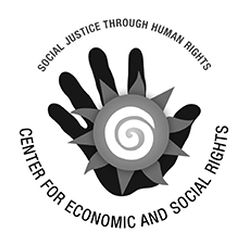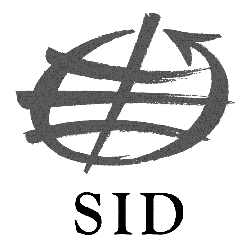By Camilo Rubiano, Public Services International (PSI)
The UN estimates that US$ 1 trillion is paid in bribes per year, while more than twice that amount – US$ 2.6 trillion – is stolen annually through corruption. [fn]UNODC (2016). [/fn] This corresponds to more than 5 percent of global GDP. In turn, the findings of a recent study by the OECD indicates that fraud and wrongdoing are more likely to occur in organizations that are closed and secretive. [fn]OECD (2016). [/fn]
Whistleblowing is a key tool to detect fraud and wrongdoing – whistleblower protection can facilitate workers’ effectiveness in stopping wrongdoing at an early stage through voicing their concern before scandals erupt and stakeholders incur huge damages.
However, regardless of the progress achieved in the last decade and the surge in the implementation of whistleblower protection frameworks and awareness raising in many countries, some high-profile cases have also evidenced the shortcomings, both in the law and the practice. The lack of dedicated and comprehensive laws is one of them. The legal protection is often scattered into many different legislations, with emphasis in the reporting channels and the facilities to disclose the information. As a result, workers who blow the whistle still face harassment, retaliation and threats. Also, the lack of clarity and a coherent approach on what can be considered a ‘protected disclosure’ have led to whistleblowers being dismissed and even sentenced to jail for breaching confidential and non-disclosure agreements. Other frameworks also include a protection akin to witness-protection programmes. While this may offer a shield against harassment and threats, it fails at protecting whistleblowers’ jobs.
A new PSI report provides arguments, evidence and examples on how a robust protection programme for whistleblowers with the active support of trade unions is a major – if not the most important – tool to fight corruption. [fn]PSI (2016). [/fn] Some of the key findings of the report are:
- Whistleblowing arrangements are an important means of detecting fraud; however, whistleblowing by employees is a more effective way of bringing wrongdoing to light than direct observation, routine controls, internal audits, external investigation and external complaints. A recent Global Fraud Report showed that in 32 percent of cases where fraud was uncovered, an employee had blown the whistle to provide information that facilitated an investigation. In the USA, 48 percent of cases where fraud was uncovered were facilitated by employees making whistleblower disclosures.
- The lack of whistleblowing protection frameworks leads to many forms of retaliation and reprisals, namely: ostracism, demotion, job loss, loss of income, assault and even murder. A series of studies in the US public sector suggests between 16 and 38 percent of workers who blow the whistle suffer retaliation. Similar percentages of whistleblower retaliation were found in Australia and the UK. However, in Norway retaliation rates are much lower – between 7 and 18 percent – thanks to strong legislation and very high unionization rates.
- Based on an estimate in 13 countries, the number of workers who need whistleblower protection at some point is estimated at 7 percent of the global workforce.
- Whistleblowing to the media represents only the tip of the whistleblowing iceberg. Whistleblowers tend to raise their concerns with different audiences throughout the process, and the vast majority of whistleblowers tend to raise their concerns internally more than once before going external, if they go external at all. Findings show that 97 percent of whistleblowing starts as voicing a concern internally, and 90 percent remains internal.
- Whistleblowing legislation and policies also carry a cost. However, whistleblower programmes show that the benefits outweigh these costs. The involvement of whistleblowers in uncovering fraud and other wrongdoing implies longer regulatory proceedings, and thus increased costs. However, whistleblower involvement helps regulators to build stronger cases. The benefits of stronger cases are a higher success rate in proceedings, and higher monetary penalties. A specific whistleblowing framework for employees who can disclose inside knowledge or organizational wrongdoing is a necessary element of an anti-corruption system.
- Based on 37 years of lessons learned, the six key provisions of robust whistleblower protection legislation include: burden of proof on the employer, forum (independence of enforcement agencies), final relief, interim relief, corrective action and support services (education and outreach). Although there are many examples of best practices on these six key provisions, the overall picture of whether and to what extent these key provisions are implemented in whistleblower legislation, is mixed.
This calls for a benchmarking initiative – a robust whistleblower protection framework to shield workers fighting corruption, but also to make the fight against corruption a credible and serious commitment. There is an important role here for social partners and the ILO. For instance, whistleblower protection is gaining momentum within the trade union movement – in addition to several national initiatives, European trade unions are leading a campaign backed by the European Federation of Public Service Unions (EPSU) and PSI. [fn]https://whistleblowerprotection.eu/. [/fn]
The ILO was one of the first international organizations to address this issue. The Convention on Termination of Employment of 1982 was one of the first international instruments to include whistleblower protection by providing that filing a complaint or participating in proceedings against an employer are not valid reasons for dismissal and by establishing that the burden for proving the reason for dismissal should rest on the employer. This reverse burden of proof has been essential in protecting whistleblowers. Thus the ILO has a role again in taking that protection further and making sure there is a solid international standard in place.
If governments are really serious about addressing corruption as part of the 2030 Agenda and SDG 16, they should take action on the protection of whistleblowers right now.
Camilo Rubiano is Trade Union Rights and National Administration Officer at Public Services International (PSI).
OECD (2016): Committing to Effective Whistleblower Protection. Paris.
www.oecd.org/corporate/committing-to-effective-whistleblower-protection-9789264252639-en.htm
PSI (2016): Checkmate to corruption: Making the case for a wide-ranging initiative on whistleblower protection. Ferney-Voltaire.
www.world-psi.org/en/checkmate-corruption-making-case-wide-ranging-initiative-whistleblower-protection
UNODC (2016): Corruption and development. Fact sheet. Vienna.
www.anticorruptionday.org/documents/actagainstcorruption/print/materials2016/corr16_fs_DEVELOPMENT_en_PRINT.pdf








